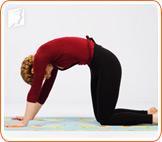Night sweats can occur as a symptom of a wide range of medical conditions or lifestyle factors. However, night sweats are most commonly associated with menopause. During menopause, the production of the hormones estrogen and progesterone drops. Estrogen has many different roles in the human body, and one of them involves regulating body temperature. This may explain why some women experience hot flashes and night sweats during menopause. However, more research needs to be done in order to better understand menopause symptoms and how they can be treated.
Night sweats cause excessive sweating during sleep. In addition to decreased hormone levels, there are many factors that can trigger night sweat episodes and exacerbate them.
About Night Sweats

Over 75% of menopausal women experience night sweats. Some groups - such as black women, women who smoke, and women who began getting hot flashes before they stopped getting their periods - tend to experience hot flashes for longer periods of time.
Symptoms of Night Sweats
Night sweats involve heavy perspiration, but they can also include:
- Feeling too warm
- Increased heart rate
- Irregular heartbeat
- Nausea
- Chills
- Headaches
Certain medical conditions can also increase the frequency and severity of night sweats during menopause for a woman. These include:
- Chronic stress
- Fatigue
- Sleep disorders
- Anxiety
- Obesity
Environmental Triggers of Night Sweats
Environmental triggers of night sweats include:

- Consuming to much caffeine or alcohol before bed
- Eating spicy food before bed
- Overheated sleeping space
- Too many sheets, or bedding made of synthetic fibers that don't allow your body to breathe
How to Treat Night Sweats
The most common treatment for vasomotor symptoms during menopause like hot flashes and night sweats is hormone replacement therapy (HRT). HRT is effective in treating hot flashes, night sweats, and other menopausal symptoms.

There is not just one form of hormone replacement therapy. It can be taken in different forms, usually as a tablet, skin patch, or cream. It also comes in different doses of progesterone and estrogen. However, HRT can increase a woman's risk of developing breast cancer, blood clots, stroke, and heart disease. It is important to talk to your doctor about any risk factors you may have in order to figure out if HRT could work for you, and if so, which type and dosage.
However, HRT is not the only option for treating night sweats. Depending on the severity of your night sweats and what may be triggering them, a doctor may prescribe antidepressants, medications to treat nerve pain, and high blood pressure medications.
There are also treatments outside of medication. Meditation, stress-relief techniques, and herbal supplements can also help reduce night sweats. By reducing stress, exercising regularly, and maintaining a well-balanced diet, you can not only improve your health, but also help manage your night sweats and other menopause symptoms.
Sources
- Ferrari, N. (2015). Menopause-related hot flashes and night sweats can last for years. Retrieved October 27, 2015, from http://www.health.harvard.edu/blog/menopause-related-hot-flashes-night-sweats-can-last-years-201502237745
- Mayo Clinic Staff. (2014). Night Sweats. Retrieved October 27, 2015, from http://www.mayoclinic.org/symptoms/night-sweats/basics/definition/sym-20050768


